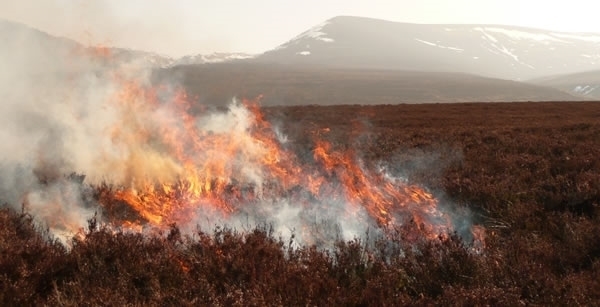
By Henrietta Appleton, GWCT Policy Officer
2 minute read
The lessons from America on wildfire suppression are real and urgent (Science Daily - Fire operations-prescribed burning combo reduces wildfire severity up to 72% 14 July 2021). There is a significant policy gap in the assertions made by the IUCN, Climate Change Committee, RSPB and others that managed burning on peatland must be stopped. They all recognise that climate change is increasing the threat of wildfire and that vegetation management is relevant in this regard, but they fail to accept (for the wrong reasons?) that managed burning has a very real role to play in completing the policy circle, particularly during the peatland restoration phase – and that there is evidence from fire-prone ecosystems worldwide that this is an accepted ‘cultural’ approach (see our Fighting fire with fire blog).
It is interesting that the views of the firefighters are being taken on board in wildfire control – in America at least. As the authors of the above research state “Fire managers have known that prescribed fire works, but they haven't been able to say how well it works. Here we're saying that it works really well.”
So why is the UK not taking on board the comments of our own Fire & Rescue Service (FRS)? An FRS co-authored report on Wildfire Policy and Management in England (Gazzard et al 2016) highlighted the lack of a coordinated approach and stated that “The … suppression paradigm runs the risk of more severe fires in the future, unless other methods of managing fuel and ignition sources are also implemented. This important international message is not widely realized in the UK. In this respect, recognition as hazard is a double-edged sword, denying beneficial effects of vegetation fire.”
Let’s learn from America and listen to the FRS before its too late.